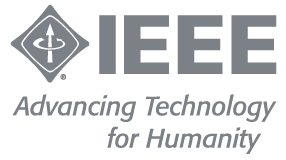Rapidly changing market demand, climate change, and unexpected events, such as the current COVID pandemic, are forcing all market players to adjust and to find a way to diminish losses. Traditional business in the food sector, such as highly important beekeeping, has found a way to apply innovative technology and successfully fight.

The beekeeping industry is becoming an increasingly demanding service. As our world population grows, the strain on the food system is increasing, therefore growing the demand for pollination services. Now, around 2/3rds of the food we consume is pollinated by bees. These services contribute around 20$ billion to the value of US crop production alone. In some of the largest EU countries (Germany, Italy, France, etc.) the beekeeping sector is worth around 73$ million. Without this sector, it would be very difficult for farmers to reach the necessary crop yields to meet the ever-increasing food demand.
Keeping a great number of bees is not an easy task. It requires beekeepers to strengthen up their swarms throughout the year to be ready for the flowering season of crops. Colony collapse disorder is a very serious recent phenomenon that hinders the development and the proper functioning of the beekeeping industry. Every year around 30-40% of colonies are lost in the US for a plethora of reasons. Beekeeping itself comes with a lot of struggles, such as managing hives on time, controlling diseases, swarming, over-wintering, etc... but now climate change is also starting to become an obstacle, even in beekeeping. If these difficulties continue, eventually food prices will also rise, and food insecurity will only worsen. To make it even more difficult than it already is, COVID has also affected the beekeeping industry quite harshly. The lockdown has prevented thousands of hives from reaching their destinations for vital crop pollination - leading to major losses both for beekeepers and farmers. Seasonal workers were also unable to work due to these same travel restrictions. Not to mention hive theft, which brings further damage to this sector.
Here at Beeing.it, an Italian food innovation startup, we focus on innovative tools and big data to protect bees and assist beekeepers in their vital services. Our company was born in 2017 when Roberto Pasi - TVLP 2015 Alumnus - a generational beekeeper, and Gabriele Garavini, an IT engineer, met in a startup hub and combined our love for bees and technology to create a true harmony with nature.
We started identifying an aggravating problem of beehives getting stolen. We put our minds to solve it and came up with small devices - discreetly inserted at the bottom of a frame in a beehive - to tell the real-time location of a beekeeper’s hive. These devices cannot be seen from the outside of the hive, so the thief is not able to tell which hives are being monitored. These devices are also able to measure humidity and temperature data to help beekeepers find out more about their swarm of bees without having to constantly check on them. If it makes them sleep better at night, not worrying their hives are going to get stolen, we consider it a success. Now we are also working on further improving these devices to be able to analyze bee sounds and vibrations, which will simplify the beekeeper’s life even further. With these devices, beekeepers can remotely monitor bee health, swarming activities, and pollination activities without the need to constantly go and check on their hives. Normally beekeepers in Italy have around 300 hives or more and having to check on each hive manually lowers both profits and efficiency. Our devices have a phone app that helps monitor all this information.
Not only that but also thanks to these devices and their data, we will be able to provide data analysis to other players in the food sector such as farmers and chemical companies. Farmers can use this pollination and bee health analysis data to be able to track how well the rented bees are performing on their crops, and how well these crops are taking in pollination. These devices have the potential to improve beekeeping services and protect hives from theft. Chemical companies will find this type of data useful to improve their pesticides and fertilizers, and what kind of impact they have on bee health and in turn pollination services.
In 2019, we launched a successful crowdfunding reward campaign on Indiegogo around an idea for making beekeeping more accessible to the general public creating urban hive called the b-box.
When COVID hit, we did encounter some troubles with shipping and production. Our suppliers were not able to deliver on time, it lengthened the process even further. However, our team did not give up and we worked hard to fulfill all our pledges. Teamwork and our understanding of customers played a big part in helping us push through the difficulties.
Looking back we have grown a lot as a company and as people. These years have taught us a lot and we are not stopping here. Right now we have over 1000 BeeSecure devices sold all over Europe and over 500 b-boxes all over the world and we are hoping to expand even further. The beekeeping Industry has major space for improvement and growth, which will benefit not only the bees, but the beekeepers, farmers, and many other players.

The beekeeping industry is becoming an increasingly demanding service. As our world population grows, the strain on the food system is increasing, therefore growing the demand for pollination services. Now, around 2/3rds of the food we consume is pollinated by bees. These services contribute around 20$ billion to the value of US crop production alone. In some of the largest EU countries (Germany, Italy, France, etc.) the beekeeping sector is worth around 73$ million. Without this sector, it would be very difficult for farmers to reach the necessary crop yields to meet the ever-increasing food demand.
Keeping a great number of bees is not an easy task. It requires beekeepers to strengthen up their swarms throughout the year to be ready for the flowering season of crops. Colony collapse disorder is a very serious recent phenomenon that hinders the development and the proper functioning of the beekeeping industry. Every year around 30-40% of colonies are lost in the US for a plethora of reasons. Beekeeping itself comes with a lot of struggles, such as managing hives on time, controlling diseases, swarming, over-wintering, etc... but now climate change is also starting to become an obstacle, even in beekeeping. If these difficulties continue, eventually food prices will also rise, and food insecurity will only worsen. To make it even more difficult than it already is, COVID has also affected the beekeeping industry quite harshly. The lockdown has prevented thousands of hives from reaching their destinations for vital crop pollination - leading to major losses both for beekeepers and farmers. Seasonal workers were also unable to work due to these same travel restrictions. Not to mention hive theft, which brings further damage to this sector.
Here at Beeing.it, an Italian food innovation startup, we focus on innovative tools and big data to protect bees and assist beekeepers in their vital services. Our company was born in 2017 when Roberto Pasi - TVLP 2015 Alumnus - a generational beekeeper, and Gabriele Garavini, an IT engineer, met in a startup hub and combined our love for bees and technology to create a true harmony with nature.
We started identifying an aggravating problem of beehives getting stolen. We put our minds to solve it and came up with small devices - discreetly inserted at the bottom of a frame in a beehive - to tell the real-time location of a beekeeper’s hive. These devices cannot be seen from the outside of the hive, so the thief is not able to tell which hives are being monitored. These devices are also able to measure humidity and temperature data to help beekeepers find out more about their swarm of bees without having to constantly check on them. If it makes them sleep better at night, not worrying their hives are going to get stolen, we consider it a success. Now we are also working on further improving these devices to be able to analyze bee sounds and vibrations, which will simplify the beekeeper’s life even further. With these devices, beekeepers can remotely monitor bee health, swarming activities, and pollination activities without the need to constantly go and check on their hives. Normally beekeepers in Italy have around 300 hives or more and having to check on each hive manually lowers both profits and efficiency. Our devices have a phone app that helps monitor all this information.
Not only that but also thanks to these devices and their data, we will be able to provide data analysis to other players in the food sector such as farmers and chemical companies. Farmers can use this pollination and bee health analysis data to be able to track how well the rented bees are performing on their crops, and how well these crops are taking in pollination. These devices have the potential to improve beekeeping services and protect hives from theft. Chemical companies will find this type of data useful to improve their pesticides and fertilizers, and what kind of impact they have on bee health and in turn pollination services.
In 2019, we launched a successful crowdfunding reward campaign on Indiegogo around an idea for making beekeeping more accessible to the general public creating urban hive called the b-box.
When COVID hit, we did encounter some troubles with shipping and production. Our suppliers were not able to deliver on time, it lengthened the process even further. However, our team did not give up and we worked hard to fulfill all our pledges. Teamwork and our understanding of customers played a big part in helping us push through the difficulties.
Looking back we have grown a lot as a company and as people. These years have taught us a lot and we are not stopping here. Right now we have over 1000 BeeSecure devices sold all over Europe and over 500 b-boxes all over the world and we are hoping to expand even further. The beekeeping Industry has major space for improvement and growth, which will benefit not only the bees, but the beekeepers, farmers, and many other players.
Julia Semeniuk, Beeing.it
Ph.credit:Unsplash


















